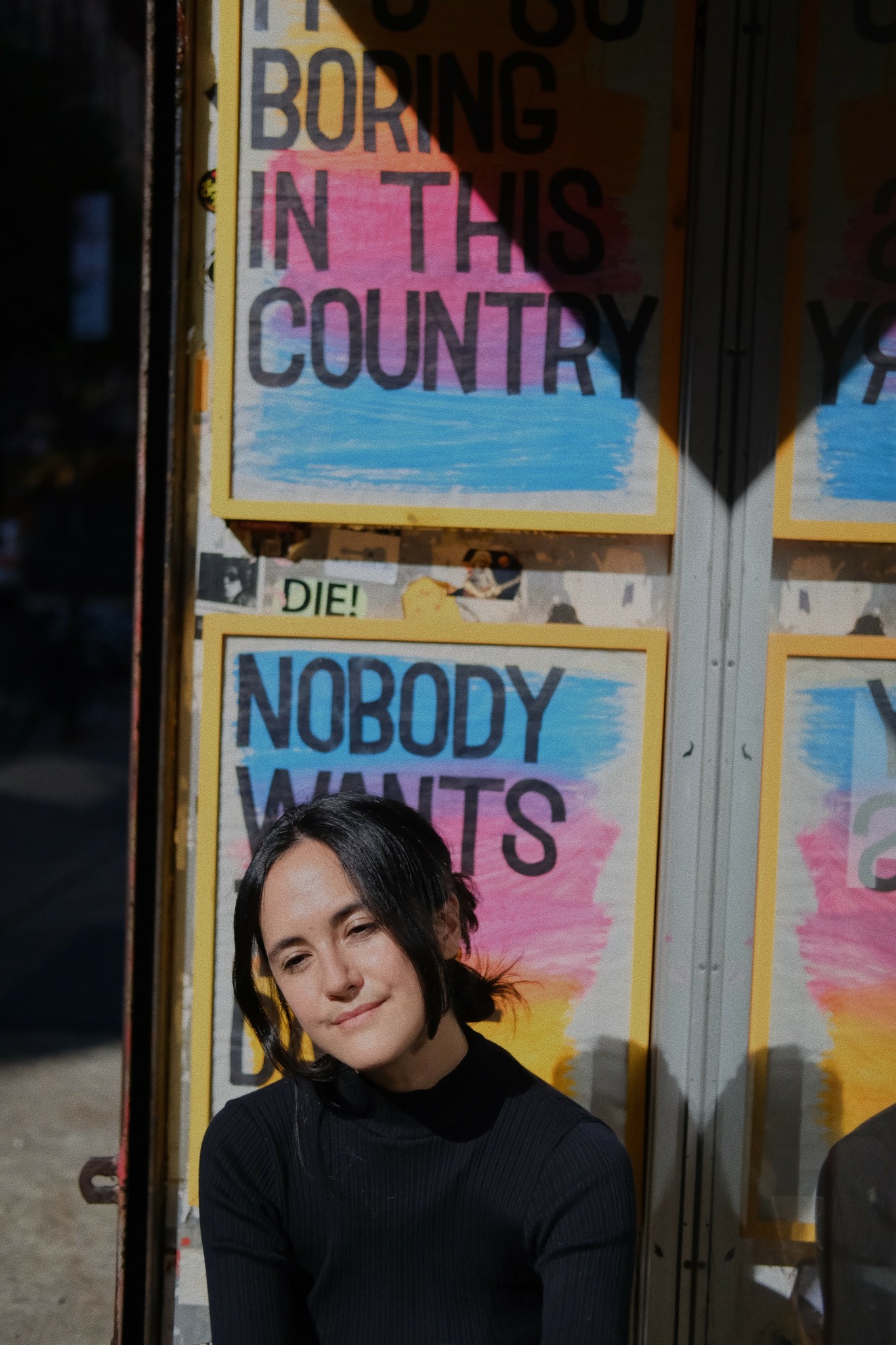We’re excited to introduce you to the always interesting and insightful Michelle Marie Esteva. We hope you’ll enjoy our conversation with Michelle Marie below.
Michelle Marie, thanks for taking the time to share your stories with us today Do you feel you or your work has ever been misunderstood or mischaracterized? If so, tell us the story and how/why it happened and if there are any interesting learnings or insights you took from the experience?
My work in the arts began with warnings. When I was a graduate student, my mom sent me a New York Times article about two women my age who had started their own artist-led collective in Detroit. Inspired by their success—and recognizing how it’s kind of impossible for people to be public with their creativity in the world’s most expensive city—I submitted Chinatown Soup as a conceptual project for a school assignment about placemaking in New York.
The universe continued to conspire, and it became a real place on Orchard Street—in the center of what is now, arguably, the most hyped neighborhood in Lower Manhattan (look up “Dimes Square” if you’re interested to learn why). Before this phenomenon came opinions:
You need a trust fund to have a gallery in New York.
You can’t be an artist and own a business.
You shouldn’t exhibit art about Chinatown if you are not Chinese.
You won’t succeed without an MFA or MBA degree.
You must put your name and photo on the website.
You should quit because this is too much for you.
Why bother if you won’t make money or get famous?
Had I believed them, I wouldn’t be here a decade later, answering this question.
At 24, I was wandering along an obscure path in pursuit of Soup, something I would not neatly package as any one thing in particular, despite solicited and unsolicited advice to identify as [insert label]. At 34, “What is this place?” remains my favorite most common question.
My dedication to exploring what community means in the context of running a multidimensional creative business throughout all manner of challenges has led to indefinite questions, many of them Home Ec related (pro tip: Girl Bossing™, Hustling™, Influencing™ et. al are popular pathways to enlightenment in late-stage capitalism, but hard skills are priceless).
Trends construe communities as outward-looking organisms, feeding on who or what surrounds them, ejecting cliché. People miss that authentic community is self-referential. It’s about creating a place where you want to be, where you belong. Sometimes it’s less a choice and more a material necessity—starting where you are, not waiting for the perfect moment or fundraising goals, and going with whatever is available.
Building the Chinatown Soup community this way has been more about understanding myself than anything else. And good art transcends its creator. So, I can respond with confidence when the next visitor asks me if I’m an artist. Arriving at that answer only took 10 years…
When I’m aware of being myself, I have no identities or expectations or complaints. I am also not on LinkedIn, and I’m convinced that helps. The business of culture is not to teach us to be without judgment, and this approach may come across as ill-suited to my field, but having fun is often messy. Those of us who can’t be bothered to take things personally for too long practice the art of being semi-permeable, which amounts to taking risks because it’s easier than taking yourself seriously. And that, for me, is something like freedom.
The idea of being a rebel is attractive to lead a storytelling platform because it describes people who hear what others think and refuse to follow. Those who want change make things move, and the rest follow. If there is such a thing as a “kind of person,” I’ve come to understand this distinction as the determining factor. So, the moral of telling a story about the resources and passion invested in creating Chinatown Soup, culminating in an almost impossible feat of reversing passivity into activism, is that anyone who tries to do anything independently must embrace what it takes to be rebellious. Or else, nothing will move.
A medium once told me that my medium is people, and, if we’re subscribing to destiny, then I cannot avoid being misunderstood or mischaracterized. Reflecting on what was said to me when Chinatown Soup was simmering, I’ve come up with a few insights that may be relevant to others who have also thought about making less common choices:
I can be a girl and not obsess about it.
I can be white and think out loud.
I can be broke and feel accomplished.
I can stay mostly anonymous and still contribute to culture.
I can make art through other people.
I can have passion and glory, too.
And so can you.
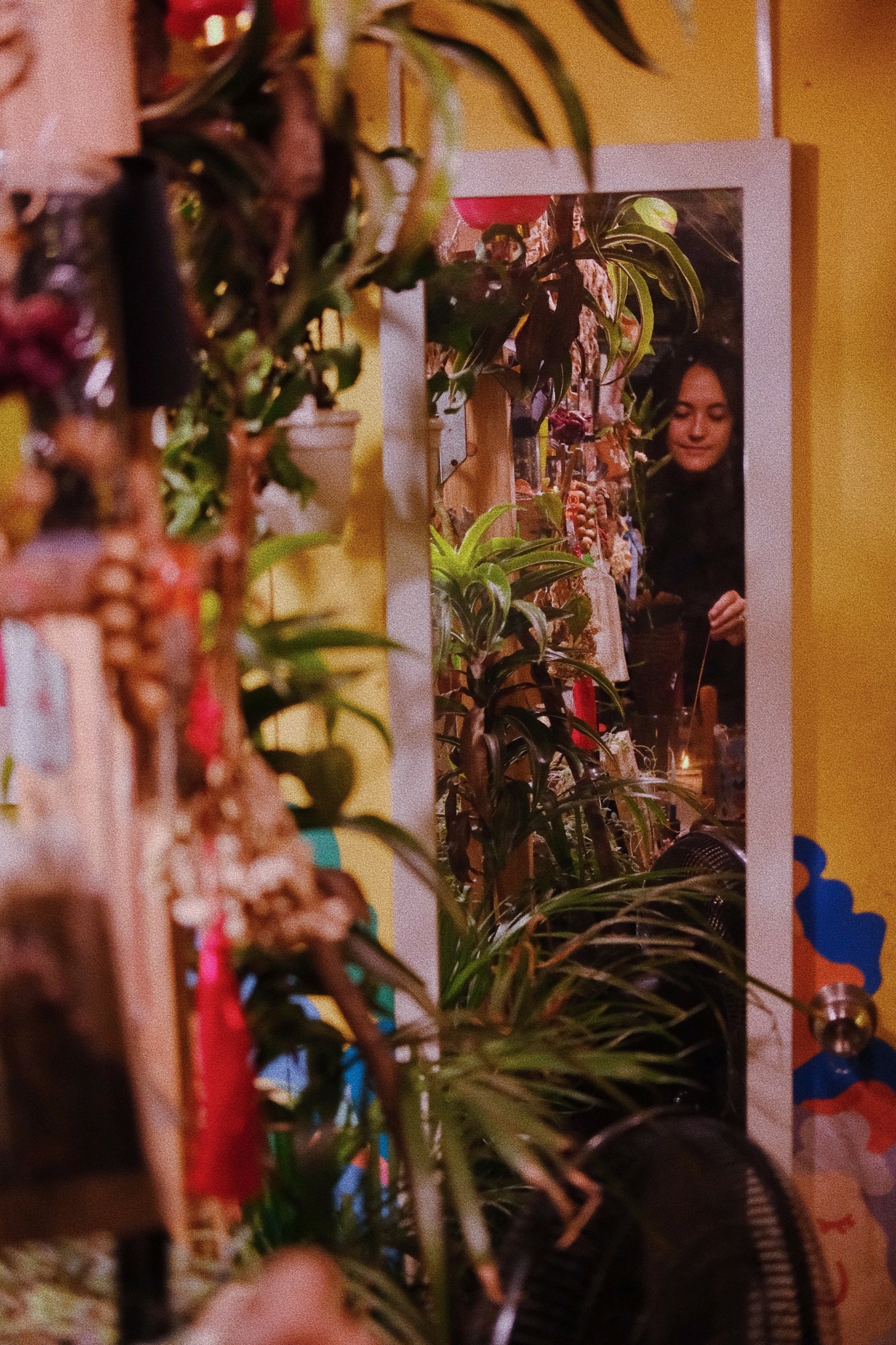
Awesome – so before we get into the rest of our questions, can you briefly introduce yourself to our readers.
Since 2014, Chinatown Soup has been a grassroots creative place in downtown New York where artists share their work, offering affordable studio space and presenting public programs that are locally rooted. We’re located on Orchard Street, right at the border of the Lower East Side, and we’re about experimenting with how we want to be in the world—both as individuals and as a community.
So, why community? What does that even mean to us? Well, for starters, it’s about making sure that emerging artists have a platform, which, in turn, seeds an ecosystem of creative pursuits growing beyond the confines of a gallery wall. We showcase new talent across disciplines, run events and workshops, and serve lots of tea—all parts of this bigger idea that yes, an accessible, creative space can (and should) exist here.
Chinatown Soup is inspired by the Stone Soup folktale and the artist-run collectives of 1970s New York. The Gallery, the Studio, and the Café are all interconnected spaces where people can come together, work according to their heart’s desire, and reimagine what life in the city can feel like. As an artist-led collective, we open up what it means to make art and explore ways to preserve the unique character of our village-style neighborhood.
Blending into our surroundings means you’ll find everything from single-origin Chinese teas to artist-made goods from our studio, local neighbors, and friends abroad. “Eclectic” is a common word visitors use to describe the vibe.
In recent years, we’ve developed something we call Spirit Soup, an interactive portal for mystic and holistic experiences, where the open-minded can explore meditation, tarot readings, reiki sessions, and hands-on learning about tradition and craft. It’s our way of offering a home for spiritual exploration in the midst of a chaotic and expansive Yuga—a touch of magic in a culture obsessed with science.
What sets Chinatown Soup apart is that it’s constantly evolving. We’re always finding new ways to create something meaningful that’s greater than the sum of its parts. That’s what I’m most proud of.
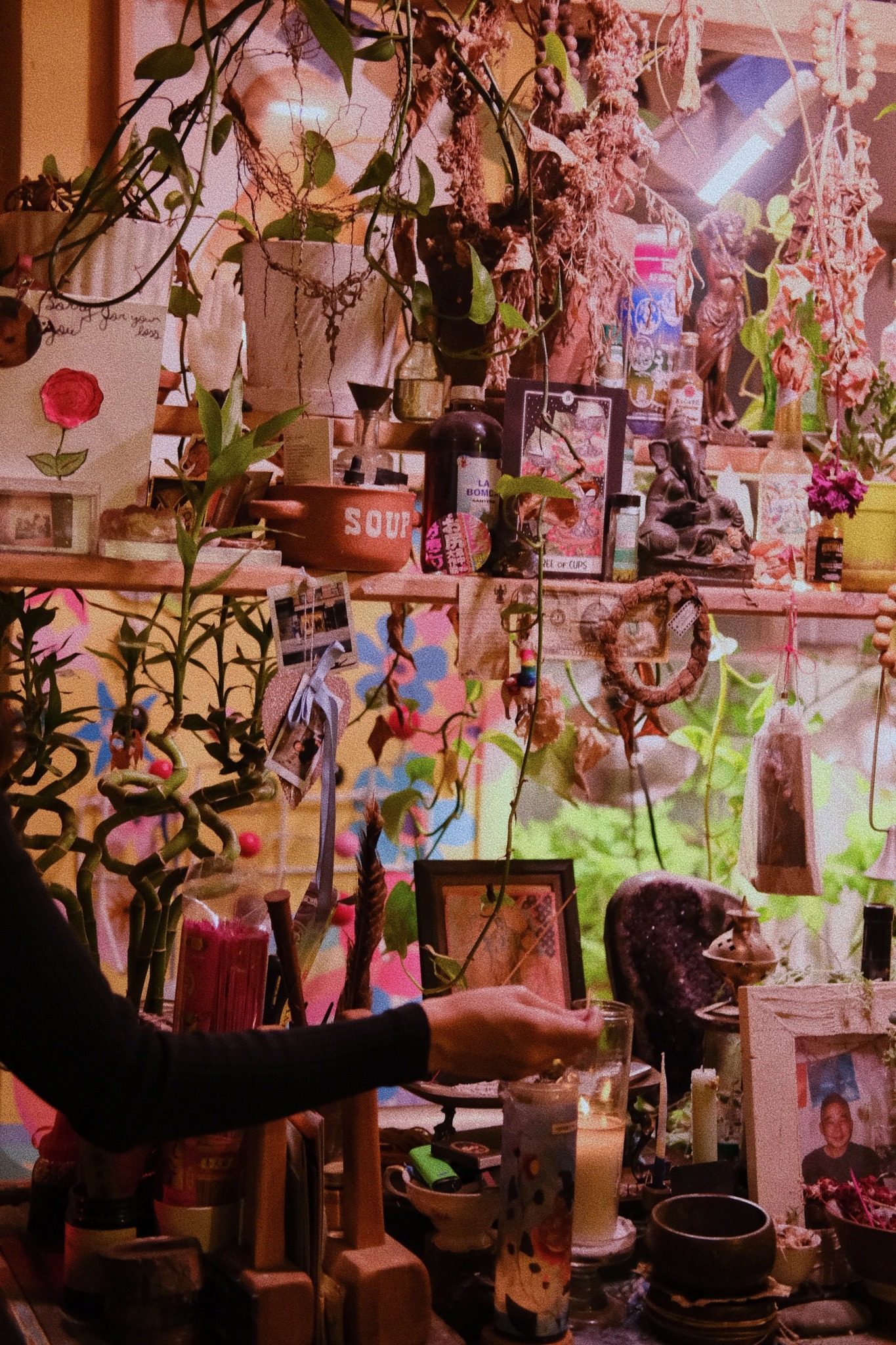
What’s a lesson you had to unlearn and what’s the backstory?
A lesson I had to unlearn in order to make this project resonate was how to communicate outside of academia. The backstory? Chinatown Soup started as my graduate school project, and I thought it needed to be presented with the same kind of seriousness and complexity I had learned in that environment.
Back then, I was deep in academic writing—long sentences, dense ideas, the kind of language that’s meant to be dissected by a small group of people who are already in the know. But out in the real world, in a community where people are trying to connect with art and with each other, that way of communicating doesn’t work.
My grade school writing teacher told me I write like I talk, and that I shouldn’t ever change. Somewhere along the way, I did, and it took me starting this project to realize the power in plain speaking. I had to kick the habit of over-explaining and relying on jargon.
Now, when I write or talk about Chinatown Soup—whether it’s for an exhibition, a program, or a conversation with a visitor—I focus on clarity, directness, and making sure the message lands with anyone. Meeting people where they are simply requires letting the art do the talking.
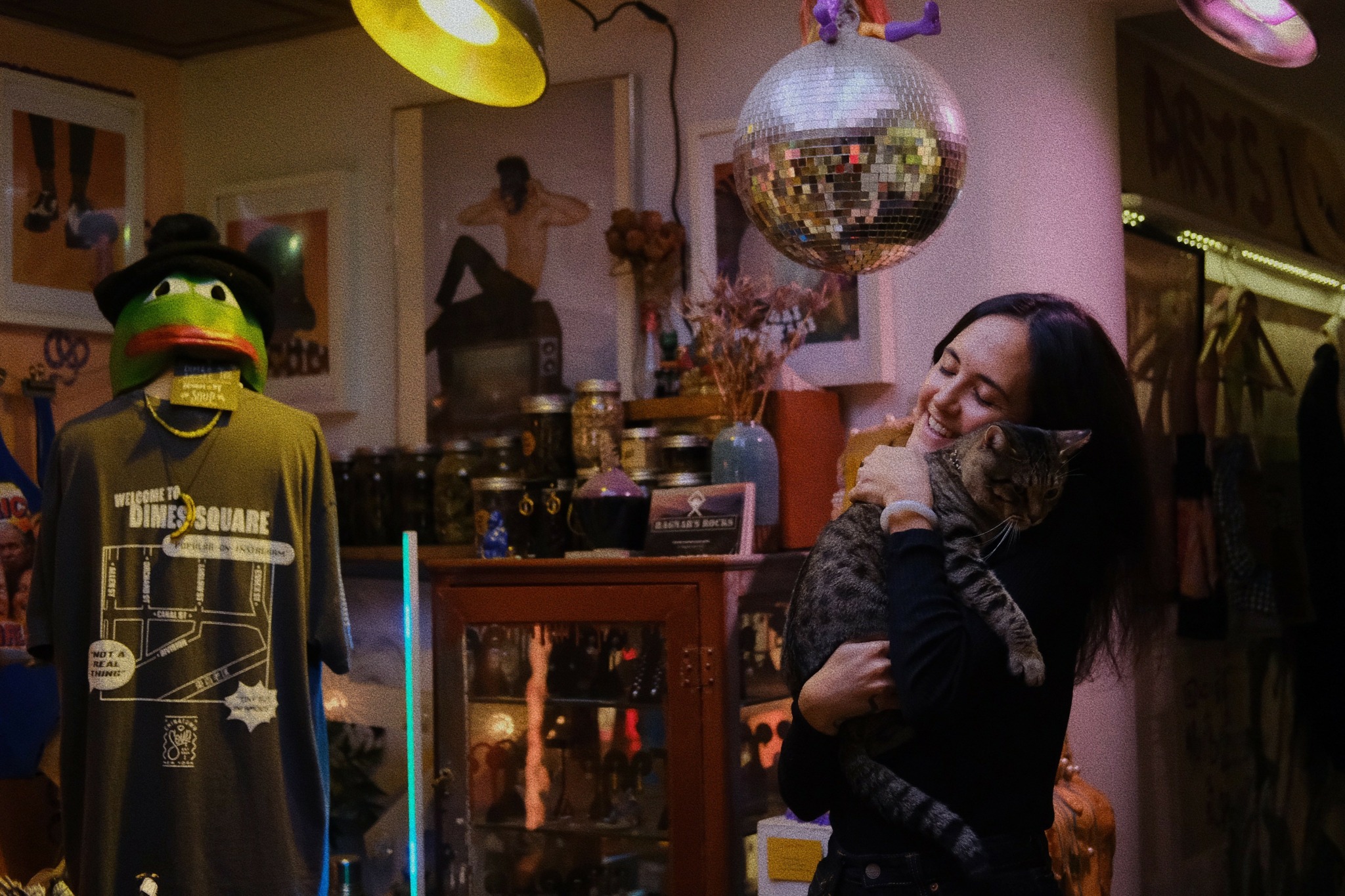
Are there any books, videos or other content that you feel have meaningfully impacted your thinking?
The year Chinatown Soup came into being, I was gifted Peter Thiel’s “Zero to One”—twice, actually. That felt unexpected, especially considering the source: a famous capitalist whose frame of reference is disparate from a scrappy, fledgling artist collective. But here I was, flipping through his book, and finding echoes of my own journey. Even more surreal was discovering that Thiel had used my borrowed quote from Field of Dreams—”If you build it, they will come”—during an early interview I did about Chinatown Soup, as the title of one of his chapters. It was as if the Voice from the movie was speaking to the zeitgeist in 2014, reaching across divides of wealth and influence.
The irony wasn’t lost on me, starting something new from the edge of the art world. Somehow that same energy was pulsing through a tech-driven, venture-backed universe. It speaks to the power of shared experience when you’re creating from scratch. Whether you’re an artist or an entrepreneur (or both), you’re taking a quantum leap into the unknown, and it’s that act of building with conviction, of putting your vision out there and trusting people will show up if you give them something real, that creates the momentum. The reward is in taking the risk.
Contact Info:
- Website: https://chinatownsoup.nyc
- Instagram: @chinatownsoup
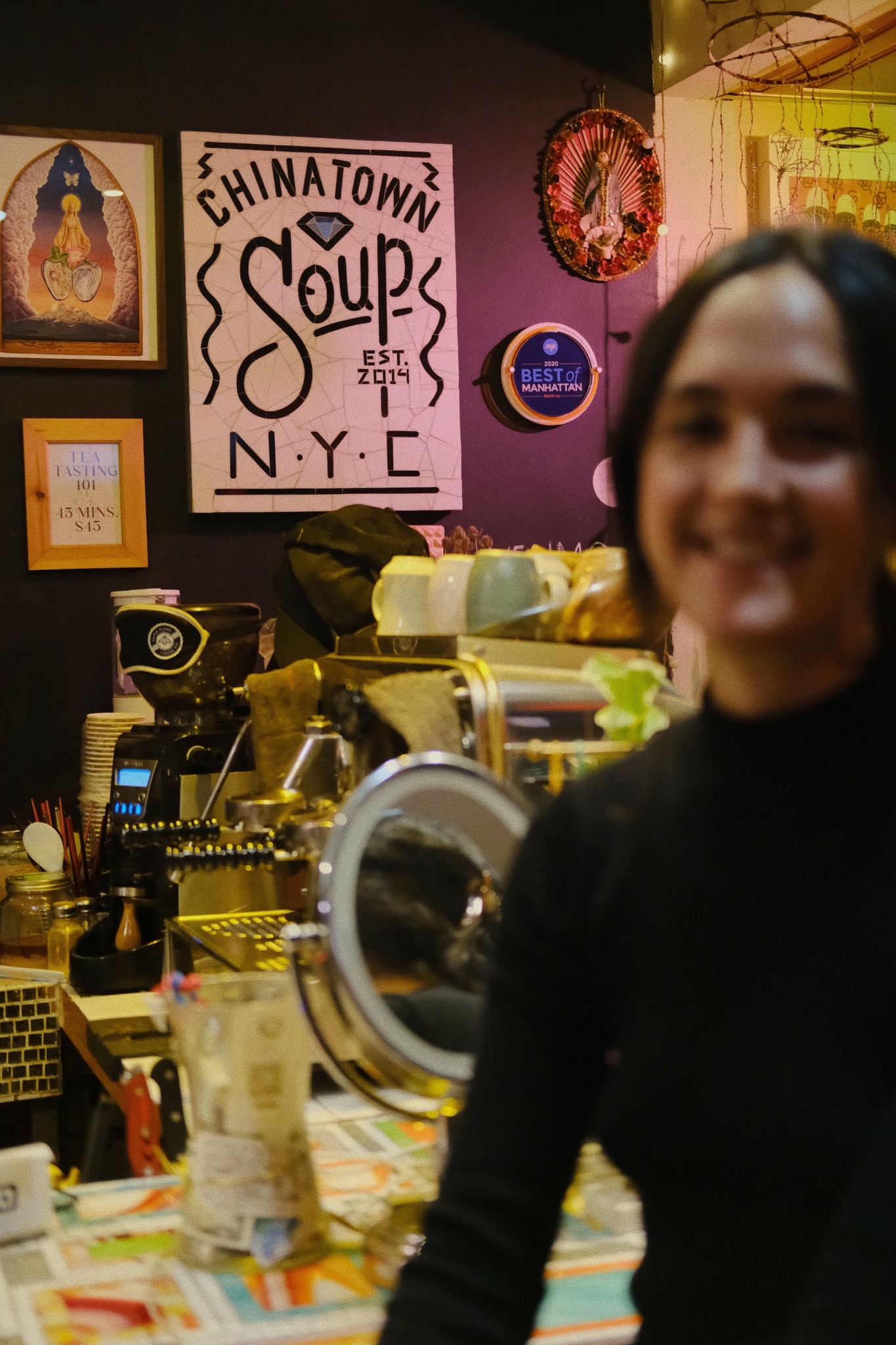
Image Credits
Victor Castro


